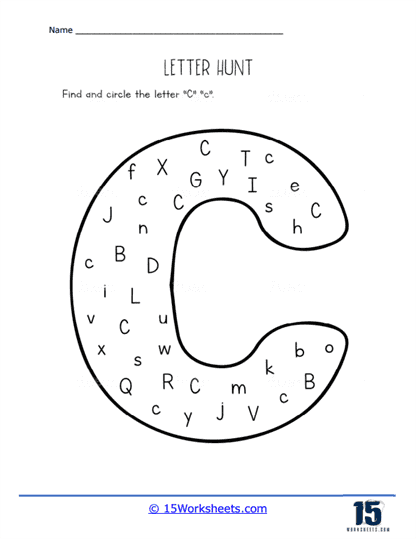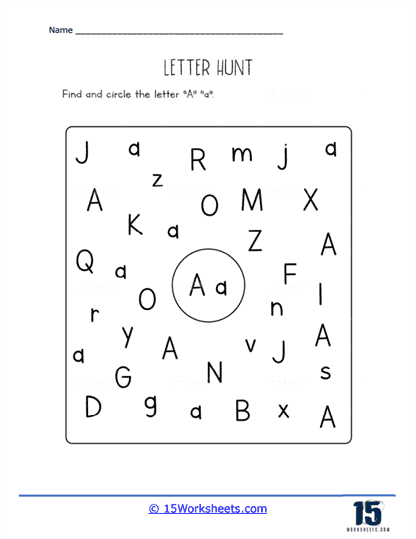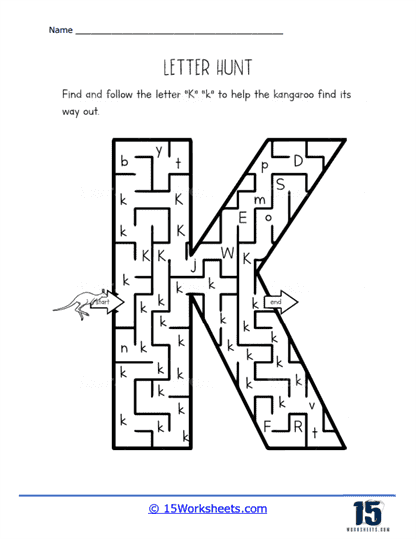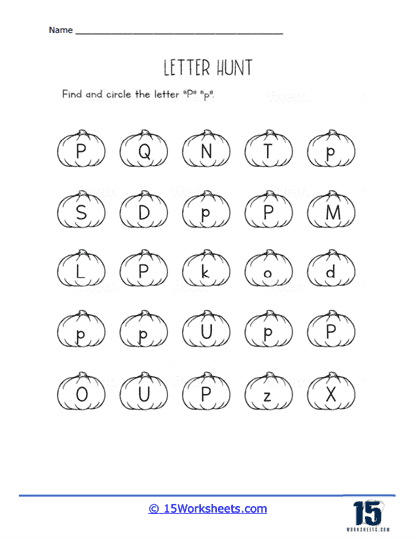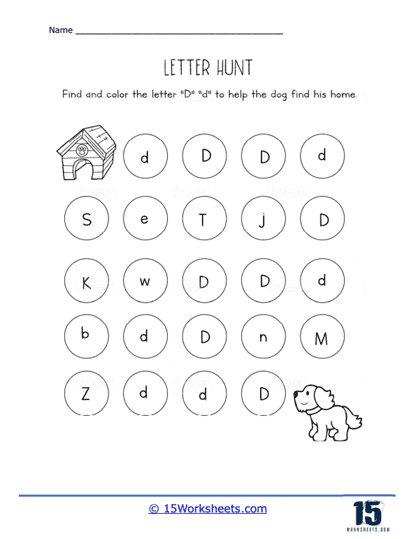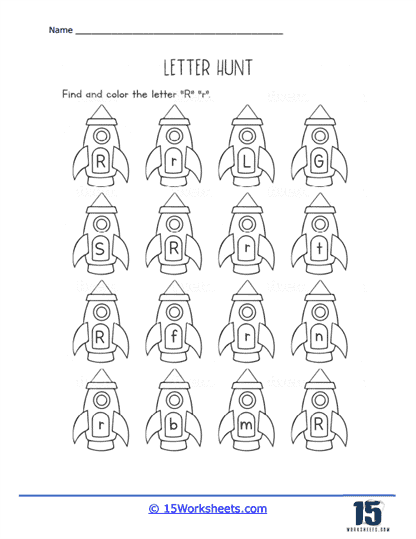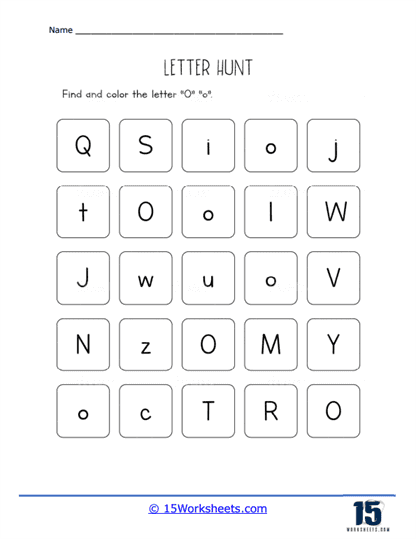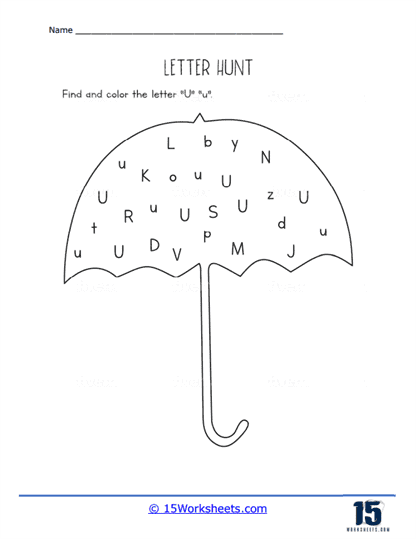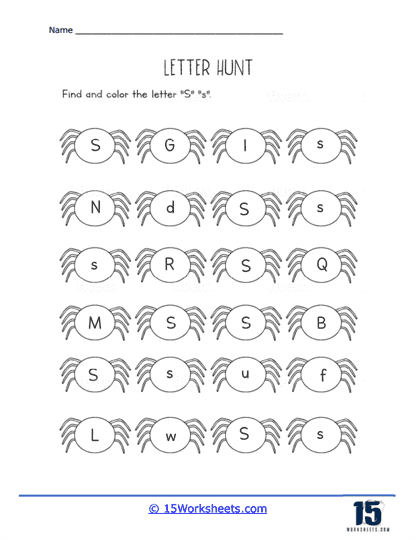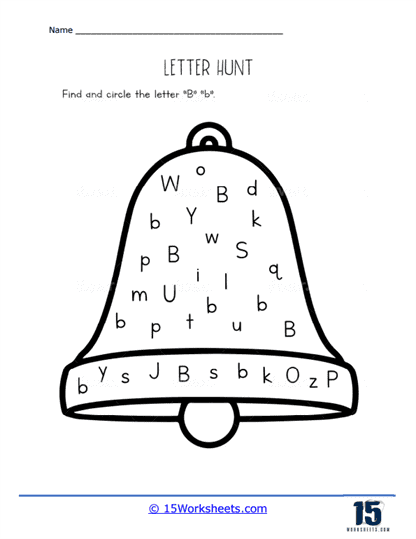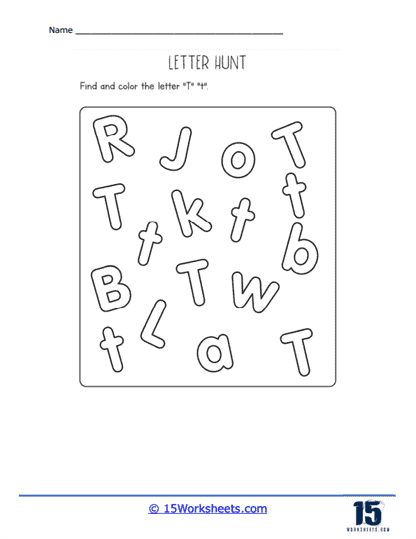Letter Hunt Worksheets
All About These 15 Worksheets
These worksheets were created to help young students, especially those in pre-kindergarten, kindergarten, and early elementary grades, practice letter recognition and develop their early reading skills. These worksheets feature various activities where students search for and identify specific letters within a grid, a group of words, or a block of text.
Letter Hunt Worksheets can include various types of activities, such as:
- Grid Search – Students look for a specific letter in a grid filled with random letters, similar to a word search puzzle but focused on individual letters instead of words.
- Highlighting or Circling – Students are provided with a block of text or a list of words and asked to highlight or circle instances of a specific letter.
- Matching – Students draw lines to connect the uppercase and lowercase versions of the same letter.
- Sorting – Students sort a group of letters into categories, such as vowels and consonants, or by matching them to their corresponding uppercase or lowercase counterparts.
- Hidden Pictures – Students color or shade boxes containing a specific letter to reveal a hidden image or pattern.
The primary purpose of Letter Hunt Worksheets is to help children become familiar with the alphabet and improve their letter recognition skills. These worksheets can be used by teachers in the classroom or by parents at home as a fun and engaging way to reinforce early literacy skills and prepare young learners for reading and writing.
Letter Hunt worksheets as an effective tool for teaching Spelling
Letter hunt worksheets can be a useful tool for students to improve their spelling skills. Here are some ways that letter hunt worksheets can help:
- Letter recognition: Recognizing letters and their corresponding sounds, which is a key foundation for spelling.
- Letter sequencing: Sequencing letters in order to form words, which is essential for spelling.
- Word recognition: Recognizing common letter patterns in words, which can help them identify and spell new words.
- Vocabulary development: Learning new words and expand their vocabulary, which can improve their spelling skills.
- Active learning: Provides a fun and engaging way for students to learn spelling, making the learning experience more enjoyable and memorable.
- Independent practice: Letter hunt worksheets can be completed independently by students, providing them with a self-paced opportunity to practice their spelling skills.
- Assessment: They can be used as an assessment tool to evaluate a student’s spelling skills and identify areas for improvement.
Overall, letter hunt worksheets are an effective tool for helping students improve their spelling skills. By providing a fun and engaging way to practice letter recognition, sequencing, and word recognition, these worksheets can help students develop a strong foundation in spelling and vocabulary.


